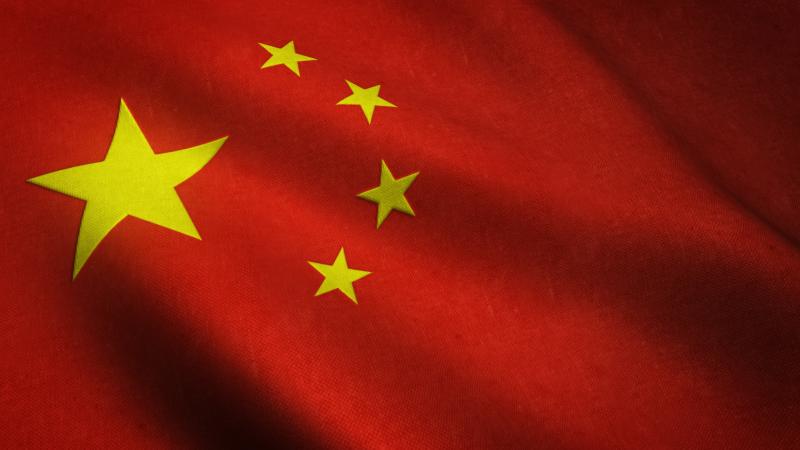Potential Russian invasion of Ukraine exposes GOP split between pro- and anti-interventionists
"The United States should not be involved in any future war in Ukraine," Rep. Thomas Massie said.
The prospect of a Russian invasion of Ukraine has exposed a split between the interventionist and non-interventionist wings of the Republican Party, with the former urging immediate preemptive sanctions and possibly even a military response, while the latter warn against being dragged into a conflict over a country that is not a vital U.S. security interest.
House GOP Conference Chairwoman Rep. Elise Stefanik (R-N.Y.) criticized President Biden's weak approach to a potential Russian invasion of Ukraine in an interview Monday on the "Just the News, Not Noise" TV program.
"This is why Putin is acting," Stefanik told cohosts John Solomon and Amanda Head, "and the fact that this administration has said these are going to be the consequences after any type of incursion — and Joe Biden said a 'minor incursion' — any incursion is an invasion when we're talking about a democratic partner, a democracy like Ukraine."
Ukraine "is an incredibly important country, this is an important partner to the United States, and it is important geographically," she said. "We want countries like Ukraine to work with their Western allies, rather than allowing Russia to essentially attack one of our important allies."
Last week, Sen. Joni Ernst (R-Iowa) told ABC's "This Week", "So far with this administration, we have seen a doctrine of appeasement, and that certainly is not going to deter President Putin and Russia from invading Ukraine, so let's make sure we are pushing back right now with stiff sanctions."
Sen. Lindsey Graham (R-S.C.) declared his support for sanctions against Russia and sending U.S. troops to Ukraine. "Don't wait for the invasion," he urged, according to The State. "They're destroying the Ukrainian economy, and they're throwing Europe into chaos."
Graham fears that weakness against Russia will be taken by China as a signal that it is free to move against Taiwan, which the PRC's communist rulers view as a renegade province of mainland China.
The "signal I want to send is, 'We're not going to back off,'" Graham explained. "If we get Ukraine right, we can reset the world. If we get it wrong, God help Taiwan."
However, Sen. Rand Paul (R-Ky.), the leading anti-interventionist voice among Senate Republicans, disagrees on Ukraine's importance to the U.S. "There is no national security interest for the United States," Paul wrote last week.
Paul, instead, concurred with former Secretary of State Henry Kissinger's rejection of the view that Ukraine must be aligned with one side or the other in the competition between Russia and the West. "[I]f Ukraine is to survive and thrive, it must not be either side's outpost against the other — it should function as a bridge between them," Kissinger wrote in 2014.
The senator recommended that Ukraine remain neutral between Russia and the West and not join NATO. The U.S., he advised, should neither send troops nor impose ineffective, pinprick sanctions. Instead, he argued, the U.S. and Europe should jointly threaten a full boycott of Russian fossil fuels in retaliation for a Russian invasion.
Conservative commentator and Fox News TV host Laura Ingraham alleged last week that Biden is using a potential military conflict in Ukraine to distract from his domestic policy failures.
"Anyone paying attention to Biden's presser last week heard the sounds of the war-drums beating [as] the media desperately wants to get off the raging crime, raging COVID, raging inflation story that's driven Biden to another new low in the polls today," she said.
The Biden administration can "count on members of both parties to join in on the saber-rattling," Ingraham commented Monday night.
Rep. Thomas Massie (R-Ky.) was unequivocal in his opposition to U.S. military intervention. "The United States should not be involved in any future war in Ukraine," he tweeted last week.
Some on the right have suggested that any responsibility for the defense of Ukraine falls on Europe, not on the U.S.
Ingraham tweeted an article from The American Conservative earlier this month headlined "If Europe Wants To Defend Ukraine, It Should." "Naturally, Kyiv wants someone to defend it, and equally naturally the Europeans believe that someone should be America," wrote the Cato Institute's Doug Bandow. But Europe should take care of its own defense instead of relying on America to provide military aid, he argued.
As of Tuesday, Poland and the United Kingdom are having discussions with Ukraine to strengthen their mutual cooperation amid Russian aggression, according to the BBC.
Polish Prime Minister Mateusz Morawiecki promised Ukraine that his country would provide defensive weaponry and humanitarian aid, in addition to preparing for possible Ukrainian refugees.
U.K. Prime Minister Boris Johnson promised on Tuesday during a visit to Kyiv that his country would give the equivalent of $118 million to Ukraine for the promotion of stable governance and energy independence from Russia, the news outlet reported.
Last week, the Pentagon placed 8,500 U.S. troops on "heightened preparedness to deploy" to Eastern Europe as tensions increased between Ukraine and Russia. However, despite Biden's claims that a Russian invasion of Ukraine is imminent, Russia denied the accusation as Ukrainian President Volodymyr Zelensky called such warnings "panic" that would internally destabilize his country.
The Facts Inside Our Reporter's Notebook
Links
- Sen. Joni Ernst (R-Iowa) told ABC's "This Week"
- The Slate reported
- Sen. Rand Paul (R-Ky.), disagreed regarding Ukraine's importance
- Henry Kissinger's view of Ukraine
- Laura Ingraham said on her show last week
- Ingraham also remarked on Monday night
- Ingraham tweeted
- article from The American Conservative
- according to the BBC
- Pentagon placed 8,500 U.S. troops
- Volodymyr Zelensky called such warnings "panic"
















